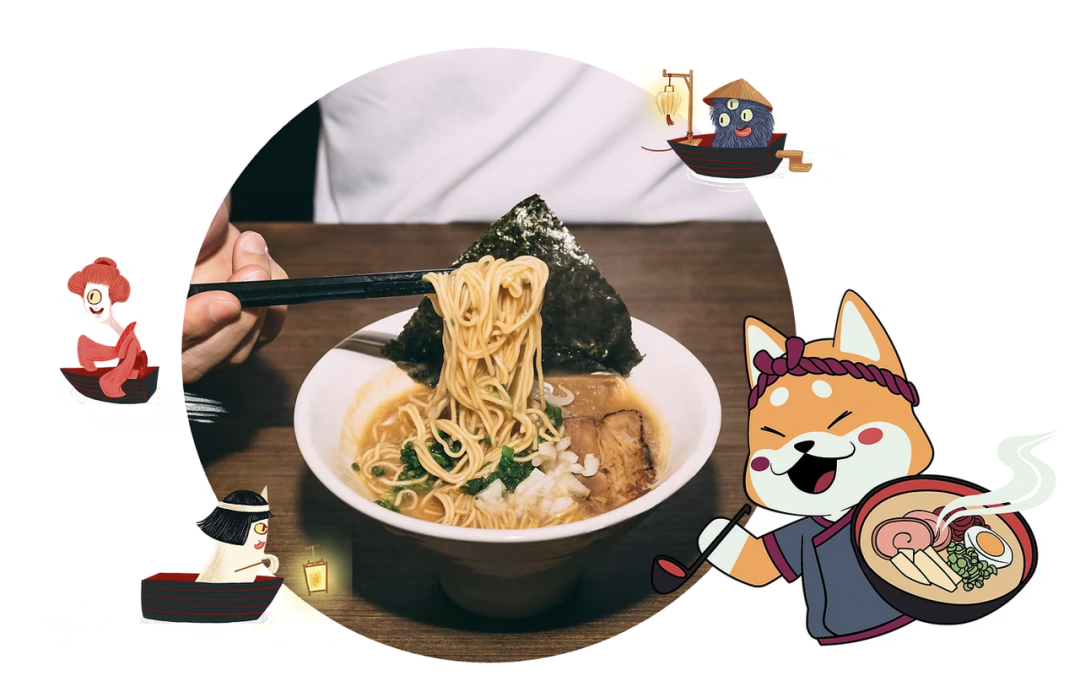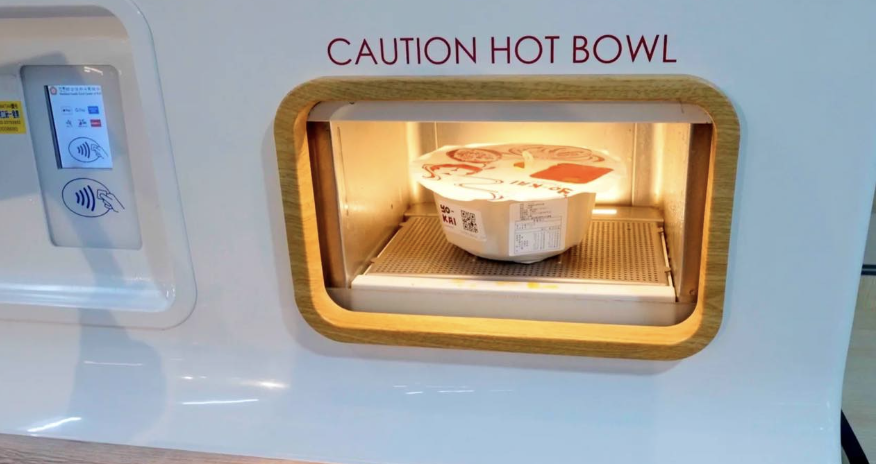AI Ramen Vending Machine by Yo-Kai Express in Silicon Valley
![]() 10/16 2025
10/16 2025
![]() 582
582
Produced by Zhineng Technology
While making smart hardware in China, innovative companies in the U.S. also have interesting offerings. For instance, Silicon Valley's Yo-Kai Express is exploring catering automation with an AI vending machine that can 'make a bowl of ramen in 90 seconds' in places like Japan and the U.S.
This product leverages precise temperature control, intelligent cooking, and a modular supply chain to create a new business model between 'unmanned restaurants' and 'ready-to-eat kitchens'.
Behind this is not just technological innovation but also a response to the structural challenges of the global catering industry—can automation and AI truly replace human 'craftsmanship' amid labor shortages, rising costs, and consumer segmentation?
Below is a 30-minute discussion from Qualcomm AI Lounge's Innovation Lounge on Yo-Kai Express's business path and technological logic. It's quite interesting.
01
From Ramen to AI Catering
Yo-Kai Express originated from a highly practical pain point: as modern life accelerates, urban workers increasingly struggle to access high-quality hot meals outside regular hours.
While traditional convenience stores and fast food offer options, taste and freshness often fall short compared to freshly cooked meals.
Founded in Silicon Valley in 2016, Yo-Kai Express targets this niche market by providing a stable, standardized, and replicable 'hot food solution'.
This 'food tech company' integrates AI algorithms, IoT, and cold chain logistics, with its business model built on three interconnected pillars: centralized kitchens for standardized production, cold chain delivery for ingredient quality, and terminal AI vending machines for instant service.
After selecting a flavor on the machine, the system automatically starts cooking based on dish type and ingredient characteristics, serving meals within 90 seconds.

This model addresses two major pain points in the catering industry:
◎ Standardization. Traditional catering often suffers from inconsistent taste across regions due to varying chef skills. Yo-Kai converts 'deliciousness' into quantifiable parameters through centralized kitchens and AI algorithms.
◎ Labor costs. In the U.S., a full-time server costs about $6,000 monthly, while Yo-Kai machines only incur rent, utilities, and ingredient expenses, significantly reducing operational costs.
Note: Such products have limited short-term market potential in China.

As the model matures, Yo-Kai Express has expanded from initial testing at Tesla's factory to Netflix headquarters, Walmart stores, university campuses, and hospitals. Its devices now operate in nine countries and regions globally, with plans to reach eighteen markets by year-end.
Meanwhile, the company is strengthening R&D in AI and sensor control technologies with support from tech giants like SoftBank, NVIDIA, and Qualcomm.
Commercially, Yo-Kai Express's competitive edge lies not just in 'automation' but in building a rapidly deployable 'hot food ecosystem'. It functions as a data-driven 'unmanned catering system supplier'.
Through partnerships with catering chains (e.g., Japan's Ippudo, Korea's Podomae, Taiwan's Shuangyue She), Yo-Kai has transitioned from equipment operator to 'channel platform'.
Partner brands leverage Yo-Kai's machines to expand retail scenarios and gain new exposure channels. By inserting technology into the traditional 'person-food-space' chain, cooking and consumption become time- and location-independent, with AI serving as the dispatch hub (dispatch hub) for the entire experience.
02
AI Cooking Technology: Temperature Control Algorithms and Flavor Restoration
Yo-Kai Express breaks through the traditional issues of 'poor taste' and 'uneven heating' in automated vending by prioritizing 'temperature control'.
Founded by a semiconductor industry team, it adapts temperature control algorithms from chip reflow ovens to food heating systems.
Unlike single-mode microwave heating, Yo-Kai's system dynamically adjusts heat output based on ingredient characteristics, achieving 'zoned temperature control' and 'curved heating'. In one meal, noodles, broth, and meat all cook at optimal temperatures, closely resembling manual preparation.
This relies on extensive ingredient modeling and sensor data. Each dish is pre-cooked to 60-70% doneness in centralized kitchens. AI algorithms generate 'reheating curves' based on thermal conductivity, executed by the device.
Multiple sensors inside the machine monitor heating status in real-time, ensuring noodle elasticity and broth consistency.

Engineering-wise, Yo-Kai Express adopts a modular design.
Cooking chambers, refrigeration units, and user interfaces are independent, enabling quick maintenance and menu swaps. Centralized cloud monitoring tracks device status and inventory, enabling automatic restocking and remote diagnostics.
This 'cloud kitchen' model maintains efficiency in high-density scenarios while reducing downtime risks.
At the algorithmic level, Yo-Kai Express is experimenting with AI-powered personalized recommendations.
Future devices will track user preferences, tastes, and even purchase times, using machine learning to optimize menus. This mirrors streaming platforms' recommendation logic—the more the system knows users, the higher sales efficiency.
For catering retail, this shifts from 'instant supply' to 'intelligent matching'.
Yo-Kai also expands into beverages and snacks. Its milk tea vending machine uses robotic arms to boil pearls, mix ingredients, and seal cups automatically, coordinated by AI. Each drink takes two minutes on average with consistent taste. This cross-category adaptability enhances the platform's commercial potential.
The system relies on an efficient supply chain loop.
Each meal is processed, vacuum-sealed, and cold-chain transported in centralized kitchens. Frozen ingredients are stored at -18°C in machines until heating signals trigger cooking. This process enhances food safety and accommodates future international cuisines.
Yo-Kai Express stands out through system integration—combining AI algorithms, sensor control, cold chain management, and human-machine interaction into a replicable model.
Summary
Yo-Kai Express is fascinating. Amid labor shortages and cost competition, the catering industry is undergoing a tech-driven transformation centered on efficiency and standardization. With complex supply chains, AI and automation's value is being reevaluated. From smart ordering systems to cooking robots, unmanned noodle shops, and intelligent coffee machines, technology is rapidly penetrating kitchens.








